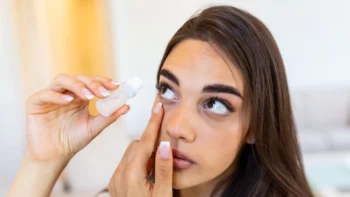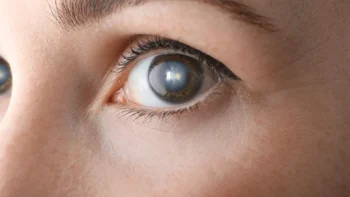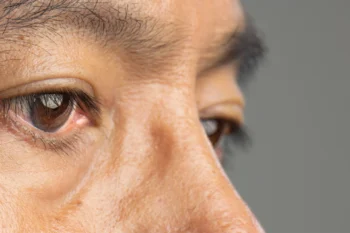Today’s modern lifestyle and diet might be putting eye health at risk. Everything may play a role in how well you can maintain your vision, from what you eat to how much time you spend looking at a digital screen.
If you understand some of the causes of eye problems like myopia, cataracts, macular degeneration, and retinal disease, you can take steps to protect your vision. Those steps should include changes in how you eat.
Common Eye Problems Might Be Linked to Diet and Lifestyle
Generally, the risk of eye problems tends to increase with age. Retinal disorders, cataracts, and glaucoma, as well as the development of floaters and presbyopia, are some of the issues that might arise. But age isn’t the only factor to consider when you think about the causes of eye diseases.
People of all ages may be affected by too much screen time, which might lead to problems from eye fatigue to retinal damage. Researchers have found that increased screen time, and less time spent outdoors, may be causing more children to develop myopia (nearsightedness).
On the other hand, if you maintain a healthy weight, stay active, avoid unhealthy habits, and eat nutritious foods you may reduce the odds of developing conditions like age-related macular degeneration (AMD), which causes vision loss.
The Relationship Between Eye Health and Diet
Certain vitamins and minerals play a critical role in the health of your eyes. Research has found that the following nutrients can be beneficial.
Vitamin A
Vitamin A can help you see better when you’re in the dark, support the health of the cornea and retina, and protect against AMD and cataracts. Plus, it might help those with retinitis pigmentosa.
Vitamin C
Vitamin C can provide antioxidant protection and therefore may support your eye health and reduce the risk of conditions like cataracts.
Vitamin E
Vitamin E is another antioxidant that may protect the eyes from harmful free radicals. In addition to helping reduce the risk of cataracts, it might slow the progression of AMD.
Zinc
Zinc is found in the macula. It helps bring vitamin A to the retina where melanin is created to protect the eyes. A deficiency in this mineral can lead to problems like cataracts and reduced night vision.
Lutein and Zeaxanthin
Lutein and zeaxanthin are carotenoids. They help protect the retina and macula. They reduce the effect of damaging blue light that comes from screens. Enough of these nutrients might help slow the progression of AMD, as well as reduce the risk of cataracts.
Omega-3 Fatty Acids
Omega-3 essential fatty acids come in the form of EPA, DHA, and ALA. Getting enough of these fats might help reduce inflammation and dry eye symptoms. Omega-3 fatty acids might also reduce the risk of glaucoma and macular degeneration.
Diet Tips for Supporting Eye Health
What are some of the foods you can add to your diet to support the health of your eyes, particularly as you get older? Here’s a short list of recommendations:
- Beans and legumes – Kidney beans, black beans, lentils, split peas, and chickpeas add variety to your diet and provide a good dose of zinc.
- Bell peppers – High in vitamins A, C, and E, bell peppers provide nutrients known for supporting the eyes in various ways, such as by helping to reduce the risk of cataracts.
- Broccoli – This vegetable provides antioxidants that can protect the eyes from free radicals that could harm the retina. It is also a source of lutein and zeaxanthin. If you want to eat more of these nutrients, broccoli is a good choice.
- Leafy greens – Leafy vegetables like spinach and kale contain vitamin C, vitamin E, lutein, and zeaxanthin. Adding a variety of dark leafy greens to your diet might help reduce the odds of eye diseases like cataracts and AMD.
- Nuts and seeds – Eating a variety of nuts and seeds, such as almonds, hazelnuts, and sunflower seeds, may be beneficial to the eyes because they provide vitamin E.
- Orange fruits and vegetables – Examples of orange foods include sweet potatoes, apricots, and carrots. Eating more of these colorful fruits and veggies can help you get enough beta-carotene, which supports both day and night vision.
- Squash – A good source of lutein, zeaxanthin, omega-3 fatty acids, vitamin A, vitamin C, and zinc. With so many types of squash to enjoy all year, these foods are a smart choice when it comes to your eyes.
Lifestyle Tips for Supporting Eye Health
Eating right is just one way to help maintain your eyes in tip-top shape. Experts also recommend following a healthy lifestyle. Here are some suggestions:
- Stay active and get plenty of exercise. Also, maintain a healthy weight. This may help reduce your odds of various diseases, including those that affect the eyes, such as glaucoma and diabetes, which might lead to diabetic retinopathy.
- When looking at a screen, take short 20-second breaks to look at something far away (about 20 feet away) every 20 minutes or so. This is referred to as the 20-20-20 rule.
- When you spend time outside, wear sunglasses to protect the eyes against harmful UV rays.
- Quit smoking. This unhealthy habit may increase the risk of various eye problems, from inflammation and optic nerve damage to AMD and cataracts.
The Importance of Eye Exams
In addition to eating wisely and leading a healthy lifestyle, see an eye care professional regularly to have your eyes examined and your vision checked. This can help you keep track of changes, as well as catch problems in their earliest stages.
When searching for a Las Vegas eye doctor, consider Brimhall Eye Center. Our services include treatments and surgeries for a range of conditions. We can also help you see clearly with LASIK. Contact us with any questions or to set an appointment.





